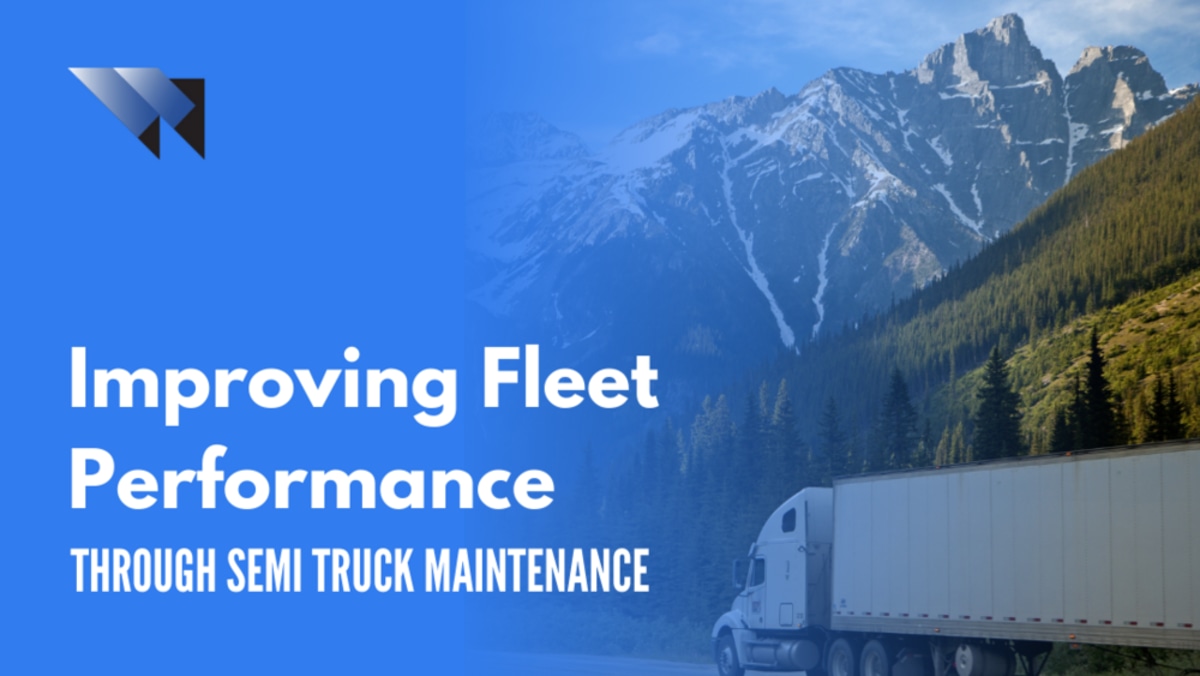
Improving Fleet Performance through Semi Truck Maintenance
April 3, 2024
Semi-trucks are the backbone of countless industries, ensuring goods reach their destinations efficiently and reliably. However, maintaining fleet performance requires keeping the trucks clean and well-maintained. In this blog post, we'll delve into the importance of semi-truck maintenance for improving fleet performance, while also exploring the future of fleet washing.
Why Semi Truck Maintenance Matters
Semi-trucks endure rigorous use, often traversing long distances and facing various road and weather conditions. As a result, they are prone to wear and tear, which can lead to performance issues if not addressed promptly. Regular maintenance plays a necessary role in preventing breakdowns, reducing downtime, and prolonging the lifespan of these heavy-duty vehicles.
Routine maintenance tasks for semi-trucks include oil changes, brake inspections, tire rotations, and engine tune-ups. These measures ensure optimal performance and enhance safety on the roads. A well-maintained truck is less likely to experience mechanical failures that could result in accidents, injuries, or costly repairs.
Proper maintenance can contribute to fuel efficiency, saving fleet operators significant costs over time. Clean air filters, properly inflated tires, and well-lubricated components all contribute to smoother operation and better fuel economy. By investing in maintenance, fleet owners can reap long-term benefits in terms of both performance and profitability.

The Evolution of Fleet Washing
While engine maintenance and mechanical repairs are essential, another aspect of fleet upkeep often overlooked is exterior cleanliness. Dirty trucks present a poor image for the company but can also compromise performance and efficiency.
Traditional methods of semi truck washing typically involve manual labor, using hoses, brushes, and cleaning agents. However, these methods can be time-consuming, labor-intensive, and environmentally unfriendly due to water wastage and chemical runoff. Manual washing may not always achieve thorough cleaning, especially in hard-to-reach areas like undercarriages and wheel wells.
Fortunately, advancements in technology are revolutionizing the way fleets are washed. Automated truck wash systems are becoming increasingly popular, offering a faster, more efficient, and environmentally sustainable solution. These systems utilize high-pressure water jets and specialized detergents to remove dirt, grime, and debris from trucks with minimal water usage.

Some automated wash systems incorporate innovative features such as reclaiming and recycling water, reducing water consumption and waste. Additionally, eco-friendly cleaning agents are being developed, further minimizing the environmental impact of fleet washing operations.
Benefits of Automated Fleet Washing
Automated fleet washing offers several advantages over traditional methods:
Time-saving: Automated systems can wash a truck in a fraction of the time it takes for manual washing, allowing fleets to maintain cleanliness without disrupting operational schedules.
Consistency: Automated wash systems ensure consistent cleaning results, eliminating variability associated with manual labor.
Cost-effective: While initial investment costs may be higher, automated wash systems can save long-term costs by reducing labor expenses and water usage.
Environmental sustainability: Using less water and eco-friendly cleaning agents, automated wash systems minimize environmental impact, aligning with sustainability goals.
Improved performance: Clean trucks are aesthetically pleasing and perform better aerodynamically, resulting in improved fuel efficiency and overall performance.
Looking Ahead
As the transportation industry continues to evolve, so will the methods and technologies used for fleet maintenance, including washing. Automated systems are likely to become more prevalent as fleet operators recognize the efficiency, cost-effectiveness, and environmental benefits they offer.
Ongoing advancements in materials science may lead to the development of self-cleaning surfaces for trucks, reducing the frequency of washing required. Nanotechnology, for instance, holds promise for creating coatings that repel dirt and grime, keeping trucks cleaner for longer periods.
Maintaining fleet performance goes beyond engine maintenance; it includes all aspects of truck upkeep, including exterior cleanliness. Automated fleet washing systems represent the future of efficient and sustainable truck maintenance, offering numerous benefits for fleet operators, drivers, and the environment. By embracing these innovations, fleets can enhance their performance, reputation, and bottom line in the long run.

Why Choose Whiting Systems?
Choosing Whiting Systems for your fleet washing needs offers unique benefits and peace of mind. With a proven track record of excellence in the industry, Whiting Systems stands out for its commitment to innovation, sustainability, and customer satisfaction. Their eco-friendly technologies ensure minimal environmental impact while maximizing cleaning efficiency, allowing businesses to meet regulatory standards and reduce operating costs. With customizable services tailored to individual needs and a dedication to continuous improvement, Whiting Systems is the trusted partner for businesses looking to elevate their fleet washing experience.
